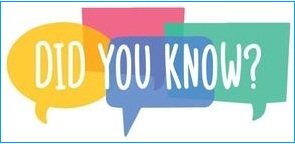Mind Layers: Values

People talk about "personal values" all the time, and for good reason. Values are critical pieces of our personality, and guide many of our actions, choices, decisions and behaviors. But what are they, really?
In short, our Values are a collection of the morals and ethics that we have built up over time. Like our Beliefs, the vast majority of our values come from the people we spent time with while we were very young. Examples of values include:
- "stealing is wrong"
- "hard work is valuable"
- "telling a lie is bad", etc.
As we'll see below, our Values have a huge influence upon our lives. In fact, the Values layer is second only to the Identities layer in terms of hierarchy. That means that our Values are based primarily upon our Identity, but in turn our Values will shape our Beliefs, Potential and Behaviors. But also notice in our illustration above, that Values are primarily stored within the subconscious, with only a little influence from the conscious mind. If that's the case, how do we figure out what our Values are?
How Values Reveal Themselves
We rarely ever consciously think about our values per se. That makes sense, because the Values layer resides primarily within the subconscious mind. But even then, our values surface indirectly when we have strong feelings about situations, events and behaviors which we either like or dislike. If asked about those sentiments, we may give reasons to justify our feelings, usually expressed in a "right/wrong" context. Or we may just say "it's just the way things should/should not be done". If we are in a disagreement with someone about the "rightness" or "wrongness" of a situation, we will also often get defensive about the way we feel.
All that being said, the Values do announce themselves through the ways we describe ourselves or speak about our choices and actions. Consider the following statements. They are all examples of our Values:
- I feel (name of emotion, conviction, value, goal, etc)
- It (some characteristic, activity, goal, etc) is important to me.
- I'm motivated to/by (name of goal, purpose, outcome, etc)
- I desire (name of goal, purpose, outcome, etc)
- I'm driven to/by (name of goal, purpose, outcome, etc)
- I'm compelled to (name of verb, goal, purpose, outcome, etc)
- I'm filled with (name of emotion, conviction, etc)
- I have the virtue of (conviction, purpose, opinion, etc)
- (Name of value, goal, verb) is important to me.
Because Values are stored in our subconscious, we may occasionally wonder about our values and what they are. We can use any of the above sentences to help explore our Values in a waking state. For example, if you'd like to know if you have a certain value, use one of the above sentences and see whether it feels strongly true, strongly false, or somewhere in between. The stronger the feeling, the stronger that particular value (or its opposite) is in your subconscious.
How Our Values Shape Our Lives
The values we learn in childhood are those which our parents taught us. In turn, they learned their values from their parents, and so on. Values are thus passed down through the generations, often without anyone ever questioning their continued merit.
Many of our values are constructive, healthy and desirable. These could include things like:
- a commitment to telling the truth
- an aversion to cheating or stealing
- a dedication to personal excellence
- a desire to serve or help others
These values are the rules by which we regulate our own conduct, and our relationships with others. As such, they are also the glue which helps bind families, neighborhoods, communities and organizations. Most parents want to pass on their values to their children as a way to make sure that their own priorities will continue into the next generation. And because the Values are stored within the subconscious, children very reliably carry values forward, whatever those values may be.
How Values Can Create Problems
While many values are healthy and constructive, some values which initially served a purpose or provided a benefit, no longer do so. When society evolves or circumstances change or even a new job comes along, our Values often don't keep up. And because those values are buried in the subconscious, we're both unaware of them, and can't easily change them. That can make us miserable. When those values express themselves through our Beliefs, Behaviors and/or via the above statements, they make us squirm. We do things we wish we wouldn't do, and we feel badly about our conduct afterwards. But we try to console ourselves with "it's the way things are." A Value we may not even know we have, can have a profound impact upon our lives. A dysfunctional Value can thus cause all sorts of cascading problems.
Change Values, Change Our Lives
Recall that Values are the second-highest mind layer in the overall hierarchy, and that they are primarily stored in the subconscious. That means we can't simply "decide" to change them. When we have dysfunctional behaviors that we can't explain, or strong dysfunctional opinions and preferences, we may need NLP techniques to access the subconscious and identify the value(s) which drive those behaviors, opinions and preferences. To do that, we need to use either hypnotherapy and/or NLP techniques.
If we are willing to learn those techniques, or work with an NLP coach, we can make those changes very easily. And notice from our example how changing only one or two values will cascade down through the Beliefs, Potential and Behaviors layers, resulting in drastically different outcomes. That's the power of using NLP techniques to make significant changes in a person's life.
If you would like to learn self-hypnosis and/or NLP, check out Transform Destiny's list of classes. They offer online hypnosis, in-person hypnosis, online NLP and in-person NLP classes. These online classes let you move at your own pace, to accomplish your own goals, in the privacy of your own home.
If you would instead like to work with a certified hypnotherapist or success coach, contact me or review my Services page.
|
Shopping Cart |
|
Contact Me For Help Reaching Your Goals

When you're ready to move forward, push through obstacles and make real progress towards your goals, Contact Me today.
New Products and Services Request Form
Do you have a product or service request that you don't already see listed here? I'd love to hear your ideas! Please feel free to either Contact Me or fill out my new Product and Service Request Form.
Thanks for your suggestions!
